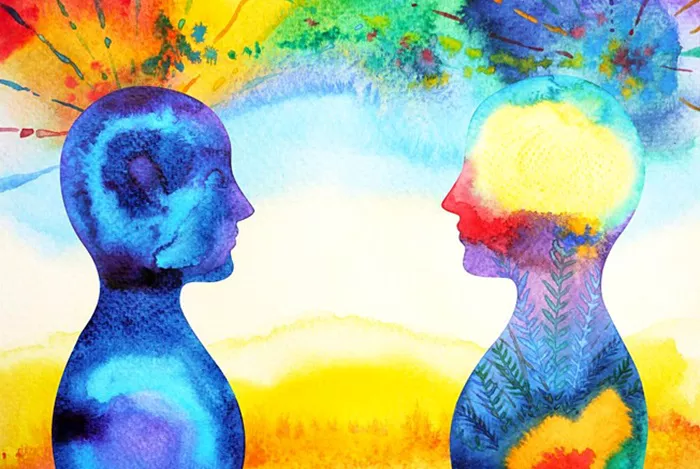In recent years, there has been a growing recognition of the intricate relationship between mental health and overall wellbeing. Mental health, often overlooked in discussions of health and wellness, plays a pivotal role in shaping an individual’s quality of life and their ability to thrive. Understanding the complex interplay between mental health and wellbeing is essential for promoting holistic health and fostering resilience in individuals and communities. This article explores the multifaceted relationship between mental health and wellbeing, delving into the psychological, social, and physiological factors that contribute to overall wellness.
Defining Mental Health and Wellbeing
Mental Health
Mental health encompasses emotional, psychological, and social well-being, influencing how individuals think, feel, and behave. It encompasses a wide range of factors, including cognitive function, emotional regulation, interpersonal relationships, and coping mechanisms. Mental health is not simply the absence of mental illness but rather the presence of positive attributes such as resilience, self-esteem, and a sense of purpose.
Wellbeing
Wellbeing refers to a state of optimal health, happiness, and fulfillment across various domains of life. It encompasses physical, emotional, social, and spiritual dimensions, reflecting an individual’s overall satisfaction with life and their ability to function effectively in society. Wellbeing is influenced by factors such as social support, financial security, physical health, and sense of belonging.
The Bidirectional Relationship
Impact of Mental Health on Wellbeing
Emotional Wellbeing: Mental health significantly influences emotional wellbeing, affecting mood regulation, stress management, and overall emotional resilience. Individuals with poor mental health may experience heightened levels of anxiety, depression, and negative affect, leading to reduced emotional wellbeing and diminished life satisfaction.
Social Wellbeing: Mental health plays a crucial role in shaping social relationships and interactions. Positive mental health fosters meaningful connections, empathy, and effective communication, enhancing social wellbeing. Conversely, mental health challenges such as social anxiety, isolation, or interpersonal conflicts can undermine social relationships and contribute to feelings of loneliness and alienation.
Physical Wellbeing: Mental health has implications for physical health and wellbeing. Chronic stress, anxiety, and depression can manifest in physical symptoms such as fatigue, muscle tension, and compromised immune function. Moreover, individuals with untreated mental health conditions may engage in unhealthy coping mechanisms such as substance abuse or disordered eating, further compromising physical wellbeing.
Cognitive Wellbeing: Mental health influences cognitive functioning, including memory, attention, and problem-solving skills. Optimal mental health promotes cognitive flexibility, creativity, and effective decision-making, contributing to cognitive wellbeing. Conversely, conditions like depression or anxiety may impair cognitive function, leading to difficulties in concentration, memory retrieval, and decision-making.
Impact of Wellbeing on Mental Health
Emotional Resilience: Wellbeing serves as a protective factor against mental health challenges by enhancing emotional resilience and coping strategies. Individuals with high levels of wellbeing are better equipped to manage stress, navigate life’s challenges, and bounce back from setbacks.
Social Support: Strong social support networks contribute to greater wellbeing and serve as a buffer against mental health issues. Social connections provide emotional support, companionship, and a sense of belonging, reducing feelings of loneliness and isolation that can exacerbate mental health conditions.
Physical Health: Wellbeing is closely linked to physical health outcomes, with positive lifestyle factors such as regular exercise, healthy eating, and adequate sleep promoting both physical and mental wellbeing. Conversely, poor physical health can contribute to stress, anxiety, and depression, highlighting the interconnectedness of physical and mental health.
Sense of Purpose: A sense of purpose and meaning in life is associated with higher levels of wellbeing and resilience to mental health challenges. Engaging in activities that align with one’s values, interests, and goals fosters a sense of fulfillment and satisfaction, contributing to overall mental and emotional wellbeing.
Factors Influencing Mental Health and Wellbeing
Biological Factors
Genetics: Genetic predispositions play a role in determining an individual’s susceptibility to mental health disorders. Certain genetic variations may increase the risk of conditions such as depression, anxiety, or bipolar disorder.
Neurochemistry: Imbalances in neurotransmitters, such as serotonin, dopamine, and norepinephrine, can impact mood regulation and emotional wellbeing. Medications targeting neurotransmitter activity are commonly used in the treatment of mental health disorders.
Psychological Factors
Cognitive Patterns: Maladaptive thought patterns, such as negative self-talk, catastrophizing, or rumination, can contribute to poor mental health outcomes. Cognitive-behavioral therapy (CBT) aims to identify and challenge these patterns to promote more adaptive coping strategies.
Trauma and Adversity: Exposure to trauma or adverse life events can have profound effects on mental health and wellbeing. Childhood trauma, in particular, has been linked to increased risk of mental health disorders in adulthood.
Social and Environmental Factors
Social Support: Strong social support networks provide emotional, instrumental, and informational support, buffering against the negative impact of stress and adversity on mental health.
Socioeconomic Status: Socioeconomic factors such as income, education, and access to resources influence mental health outcomes. Individuals from disadvantaged backgrounds may face greater barriers to accessing mental health care and experience higher levels of stress and adversity.
Cultural Factors: Cultural beliefs, norms, and values shape perceptions of mental health and influence help-seeking behaviors. Culturally sensitive approaches to mental health promotion and treatment are essential for addressing diverse needs within communities.
Lifestyle Factors
Physical Activity: Regular exercise has been shown to have numerous benefits for mental health and wellbeing, including stress reduction, mood improvement, and enhanced cognitive function.
Nutrition: A balanced diet rich in fruits, vegetables, whole grains, and lean proteins supports both physical and mental health. Nutritional deficiencies can exacerbate symptoms of mental health disorders.
Sleep: Adequate sleep is essential for mental and emotional wellbeing, with poor sleep quality and insomnia linked to increased risk of anxiety, depression, and other mental health issues.
Promoting Mental Health and Wellbeing
Early Intervention and Prevention
Education and Awareness: Increasing public awareness and understanding of mental health issues helps reduce stigma and promote early intervention. Education programs in schools, workplaces, and communities can foster mental health literacy and encourage help-seeking behaviors.
Screening and Assessment: Routine screening for mental health disorders allows for early identification and intervention. Screening tools administered by healthcare providers can help identify individuals at risk and facilitate access to appropriate treatment and support services.
Access to Care
Integrated Care: Integration of mental health services into primary care settings improves accessibility and reduces barriers to treatment. Collaborative care models involving multidisciplinary teams can address both physical and mental health needs holistically.
Telehealth Services: Telemedicine and teletherapy offer convenient and accessible options for delivering mental health services, particularly in underserved or remote areas. Virtual platforms provide opportunities for remote assessment, counseling, and ongoing support.
Community Support
Peer Support Programs: Peer-led support groups and networks provide individuals with lived experience an opportunity to connect, share resources, and offer mutual support. Peer support programs empower individuals to take an active role in their recovery and promote a sense of belonging and community.
Community Resources: Accessible community resources, such as mental health hotlines, crisis intervention services, and community centers, offer vital support and resources to individuals experiencing mental health challenges. Collaboration between community organizations, government agencies, and healthcare providers is essential for maximizing the impact of these resources.
Conclusion
The relationship between mental health and wellbeing is multifaceted and dynamic, encompassing psychological, social, and physiological factors. Mental health influences emotional, social, cognitive, and physical wellbeing, while wellbeing serves as a protective factor against mental health challenges. Various biological, psychological, social, and environmental factors influence mental health and wellbeing, highlighting the need for comprehensive, integrated approaches to promotion and intervention.
By promoting early intervention, increasing access to care, fostering community support, and promoting resilience, individuals, communities, and societies can work together to enhance mental health and wellbeing for all. Embracing a holistic understanding of mental health and wellbeing is essential for creating supportive environments, reducing stigma, and fostering inclusive, equitable approaches to mental health promotion and care.
[inline_related_posts title=”You Might Be Interested In” title_align=”left” style=”list” number=”6″ align=”none” ids=”9453,9397,9392″ by=”categories” orderby=”rand” order=”DESC” hide_thumb=”no” thumb_right=”no” views=”no” date=”yes” grid_columns=”2″ post_type=”” tax=””]
































